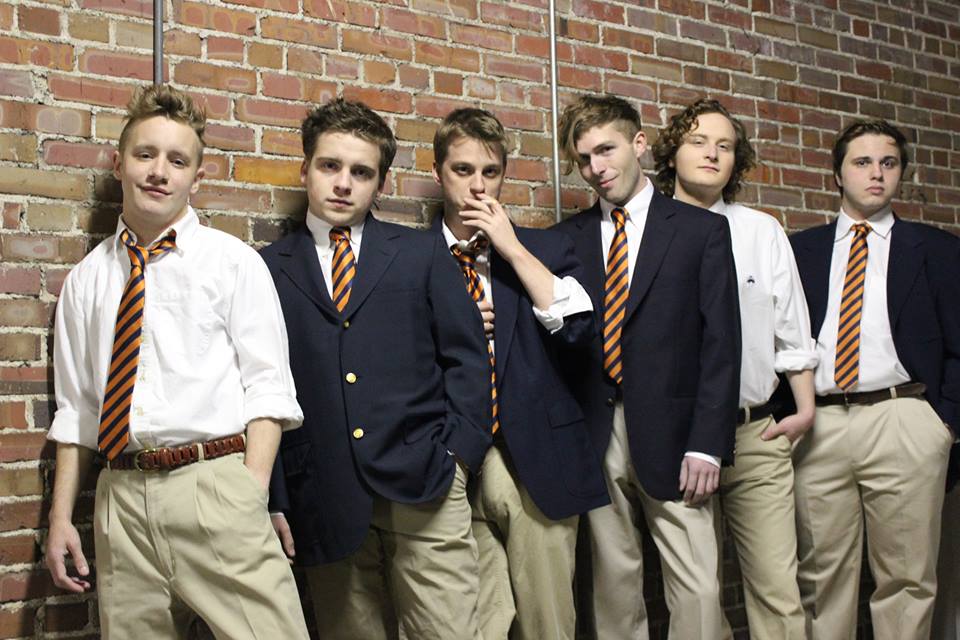When I was studying acting in New York, I had one teacher who affected me more than any of the others. From day one, we seemed to have an unspoken understanding about what we were there to do. He had a way of making the pursuit of knowledge for the sake of knowledge an exciting journey. I’m sure many people have had teachers like him. He treated his students as equals, which in turn made us feel free to be honest and inhibition-less. He made the pursuit of excellence an honorable goal, not just a path to the good grade or the big job. I know that there are teachers like him at schools all over the world, teaching every subject imaginable, but his individual effect on me I carry to this day, and rarely when I am performing do I not think of him.
The play The History Boys by Alan Bennett is centered around just this kind of teacher, Hector, an English teacher at a grammar school in Great Britain—more on him later. Before I go any further, I have to remind everyone of just how different the education system in Great Britain is from America. Honestly, anytime I experience any British art or literature I feel that we here in the U.S. are severely lacking, but don’t get me started on that. The eight boys that make up the title ensemble are in sixth form college, the extra two years of schooling that occur after you graduate grammar school at 16. So that puts them all at around 17–19 years old. They each have their own area of interest and are now preparing for their university interviews, mostly aiming for Oxford or Cambridge. The scenes all take place in an office or a classroom, with momentary lapses for individual characters to speak directly to the audience.

Enter Hector, a hero to this group of boys, not only because his classes are structureless and rowdy, but because they know that Hector wants them to learn for the sake of enriching their lives through culture. He has been their teacher for many years, and they have a shorthand with him. Director Robbie Thomas says, "He (Hector) wants you to feel history. It was something real; it happened." Hector encourages the boys to learn poetry by heart, to understand the importance of literature and be able to reflect on it with full appreciation. Hector also rides a motorcycle and every now and then will offer his favorite boy a ride home. Keep in mind that these boys, though rambunctious and playful, are also brilliantly clever and smart. They are not blind to the ways of the world. They can see that Hector is homosexual, and they know what the offer of a bike ride means. Hector’s favorite is Dakin, the sharpest of the bunch.
Enter Professor Irwin, Hector’s foil, and in some ways the antagonist of the piece. Irwin is young, and cynical about knowledge. He encourages the boys to learn the facts, but also how to use them to prove or disprove a point. He wants the boys to learn how to trick the system. Think about how students are taught to take the SATs. It’s not about the actual content of the questions. Its about knowing how to analyze them. Tests like the SATs are notorious for asking seemingly complicated questions that are easily solved if you know how to read them. Basically, it's less about passion and more about the manipulation of knowledge to get what you need with cold, hard facts. Dakin surprisingly finds himself attracted to Irwin’s new way of teaching, which, being so different from Hector’s, eventually causes discourse. Amusingly enough, the teacher who acts as mediator between the two teaching styles, and seems to have the most passion for what teaching history actually means, is Professor Lintott (Lynda Harvey), the only female character. This play, at its core, is about knowledge and how to achieve it. Not only knowledge from books, but knowledge of the soul. I see it as a melding of intelligence and passion, which when combined, create the richest human experience.
Now before you start thinking that this is a snotty stereotypical British play, let me assure you...
It is set in the 1980s. The music is on point. The boys are young, cheeky, and totally adorable. I think one of the most exciting things about this production is the group of boys. All College of Charleston students and graduates, they have all either gone to school together or worked on shows together. They have literally lived this play, in terms of their friendship. This makes for an electric chemistry between them on stage. Did I mention they were cute? Like- SO cute.
This is the inaugural production in Woolfe Street’s SideStage, a black box space behind the Davis MainStage. In true Woolfe Street fashion, the space is bedecked with vintage treasures, with walls draped in gold and red velvet. The History Boys was added to Woolfe Street's regular season under a month ago, meaning that this play has been mounted in about three weeks, plus tips. No small feat. In addition to the time constraint, Woolfe Street’s next MainStage production of Blood and Gifts is rehearsing next door, which makes for a full building, not to mention a loud one. Needless to say, this cast has been working hard.
The History Boys is directed by Robbie Thomas and the all-local ensemble cast features Robin Burke, Lynda Harvey, Christian Persico, Spencer Jones, Bronson Taylor, Corey Webb, Horry Kerrison, Mark Baldino, Cam Christianson, Brennan Reeves, and Fady Atteya. Running February 27–March 7 at 34 Woolfe Street, Downtown Charleston~ Tix @ http://woolfestreetplayhouse.tix.com/Schedule.aspx?OrgNum=1687&Tooltip=N
I urge you, if you have ever had a teacher who made an impression, to see The History Boys.